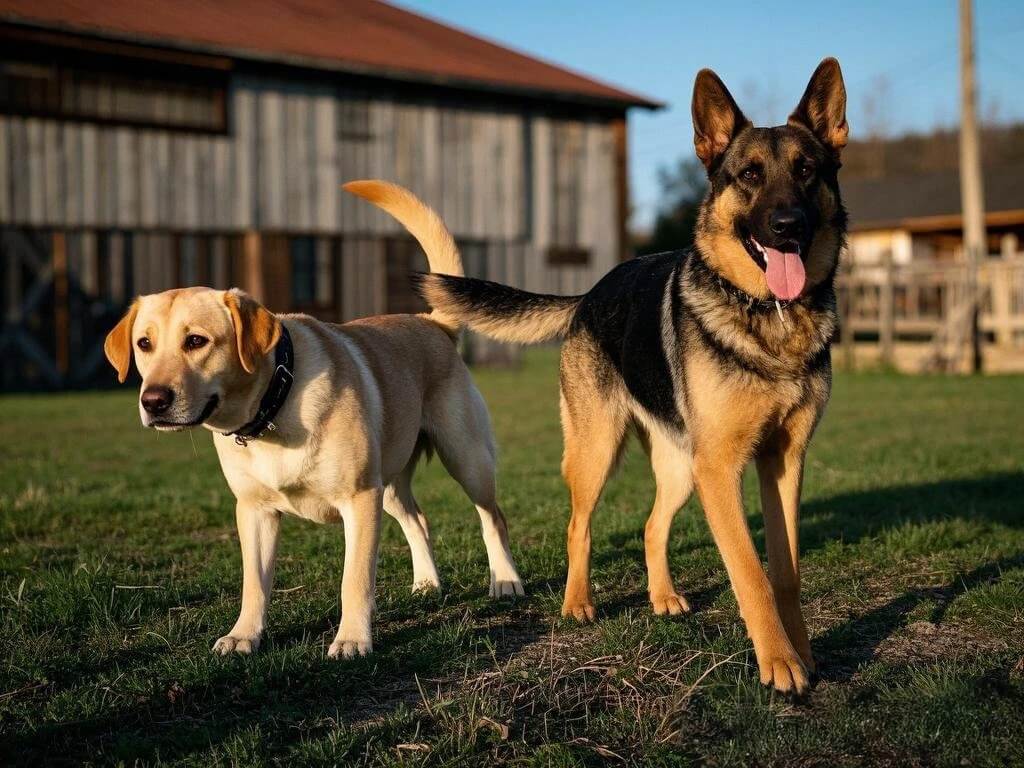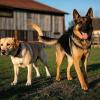Difference between working dogs & other breeds
What’s the Difference Between Working Dog Breeds and Other Dog Breeds?
In the world of dog ownership, choosing a breed is one of the biggest considerations before deciding to adopt a dog. This is because a dog’s specific breed can influence its temperament, personality, and energy level.
For example, the Labrador Retriever is considered a family-friendly breed due to its temperament, which tends to be good with children and relatively easy to train. Additionally, this breed is fairly low-maintenance when it comes to grooming.
What is a working dog, and how is it different from other dogs?
Whether a dog is considered a working dog or not depends on the terminology used. By definition, any dog that “has a job” is a working dog. Dogs that are assigned to perform specific tasks and not kept solely as pets can be considered working dogs.
Throughout the domestication of dogs, which has occurred over thousands of years, humans have utilized dogs’ skills to perform tasks that are difficult for humans to do alone. Some of these jobs include herding sheep and other livestock, guarding livestock, and pulling sleds.
From that domestication process, dogs have continued to be human companions in both work and companionship. Working dogs can assist people with disabilities in navigating their surroundings, detect food allergens, or sense early symptoms of medical conditions. People who own dogs for medical purposes are considered to have service dogs — dogs that are specially trained to perform critical tasks for their owners.
In farming contexts, dogs are still used today to help farmers guard and herd livestock against wild predators. Police also employ dogs to detect illegal substances due to their highly accurate sense of smell.
Of course, working dogs undergo more complex training compared to regular household pets. The discipline required from both trainer and dog is high to ensure that the dog can consistently perform its duties well.
So, what is a working dog breed?
In dog shows or pageants, the AKC (American Kennel Club) classifies dog breeds into several categories — one of which is working dog breeds. The AKC describes breeds in this group as “quick to learn, intelligent, strong, and alert. Bred to assist humans, they excel at guarding property, pulling sleds, and performing water rescues.” Britannica Encyclopedia describes working dog breeds as “dogs commonly associated with guarding, guiding, protecting, pulling [sleds], and saving lives. [...] Working breeds are typically strong, alert, intelligent, and loyal.”
Dog breeds categorized as working dogs were bred for labor and require regular training. Many working dogs are high-energy and need that energy to be channeled into non-destructive activities. Because of this, some working dog breeds are not recommended for first-time dog owners.
Some examples of working dog breeds include:
Saint Bernard
Siberian Husky
Akita
Great Dane
Rottweiler
There are many more breeds in the AKC classification system, but this article focuses solely on working dogs. Regardless of breed, every dog is a unique individual with its own personality. Before adopting any breed, be sure to do thorough research and consider the breed’s characteristics. Spend time with different breeds to find out which best fits your personality and lifestyle.
References:
https://www.britannica.com/animal/dog
https://www.akc.org/dog-breeds/working/







